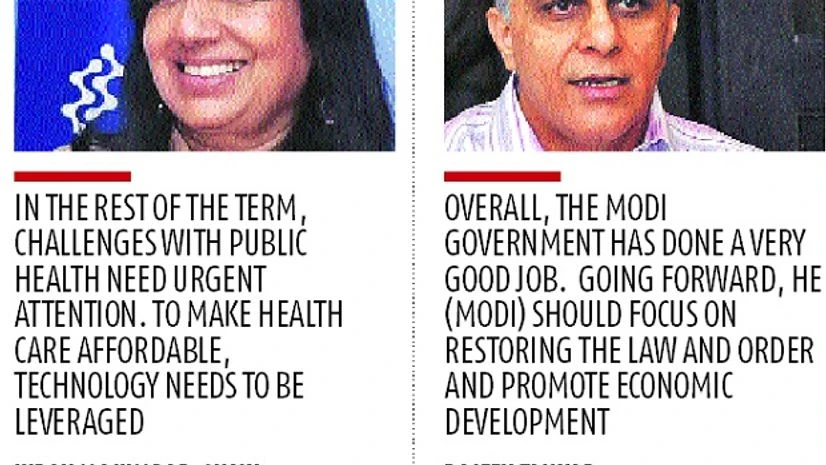The Narendra Modi government has received a big thumbs up from India Inc leaders as it completes three years in office.
The government, they said, had managed the economy well by plugging subsidy leakages, following transparent policies while auctioning natural resources, and clearing the way for the roll-out of the game-changing goods and services tax (GST) from July 1.
Responding to a questionnaire on the government’s performance, 30 chief executive officers (CEOs) surveyed across India said the ruling dispensation had contained the fiscal deficit, increased electricity generation, and worked tirelessly to build infrastructure in the last three years. The CEOs said the initiatives such as Make in India, Skill India, and Swachh Bharat Abhiyan would immensely benefit the country in the long term, provided they were implemented on the ground.
About 63 per cent of the CEOs surveyed said they added new jobs in the last three years. Ninety-seven per cent said the GST roll-out would give a fillip to the Indian economy.
In another survey carried out by this newspaper on May 20, soon after the GST rates were made public, 62 per cent of the CEOs had said the GST would have a positive impact on inflation.
When asked whether “tax terrorism” had increased under the Modi government, 73 per cent of the CEOs said it had not, while the rest said they, indeed, faced harassment from tax inspectors.

Finance Minister Arun Jaitley, Road Transport and Highways Minister Nitin Gadkari and Power Minister Piyush Goyal were cited as the most efficient members of Modi’s cabinet. Ninety-three per cent of the CEOs said the government had managed to contain the fiscal deficit well.
More From This Section
While most of the CEOs said they had left demonetisation behind after a temporary blip in sales in the December quarter, a few said the note ban move created hardships for the common man and could have been implemented better.
Many CEOs cited the face-off between Kashmiri locals and the Indian Army as a risk to the government.
When asked what the government should focus on for the rest of its term, CEOs said the resolution of non-performing assets, infusion of fresh capital into banks and job creation should be the top priority for the government.
Labour reforms should be on top of the government’s agenda as no firm action had been taken on this issue so far, they said. “Labour reform is imperative as industry has been continuously suffering from labour unrest problems resulting in disputes, lock-outs etc. Also, reforms like the single-window clearance where the manufacturers can get all the approvals under a single roof, developing adequate infrastructure and making it easier for companies to do business in India should be given top priority,” said Sumit Sawhney, CEO, Renault India.
A few of them stressed the need to protect the fragile social fabric of the country in the face of communal tension. The ministries of human resources and health would require more attention in the next two years so they can make a direct impact on the public, the CEOs said.

)
